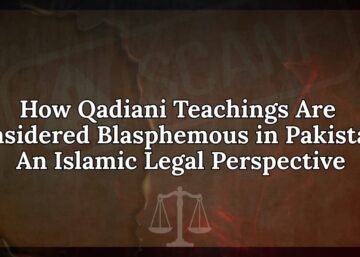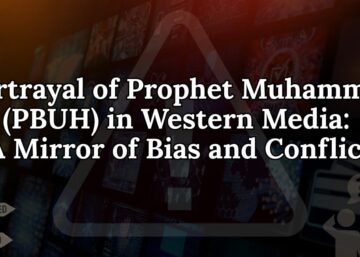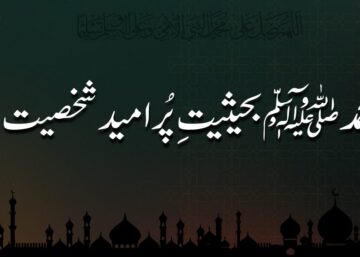Introduction
The concept of the finality of the Holy Prophet Muhammad (peace be upon him) is a cornerstone of Islamic belief and a pivotal element in the faith of over a billion Muslims worldwide. This doctrine, known as “Khatam-un-Nabiyyin” (Seal of the Prophets), signifies that the Prophet Muhammad (peace be upon him) is the last of the prophets sent by Allah, bringing the final message to humanity. This belief is not only fundamental to Islamic theology but also has profound implications for the faith, its followers, and its practice.
The Role of Previous Prophets in Islam
The finality of the Prophet Muhammad’s (peace be upon him) prophethood must be understood in the context of the previous prophets and revelations. Throughout history, Allah has sent various prophets to guide humanity, each with a specific message tailored to their respective communities. These prophets, including Adam, Noah, Abraham, Moses, and Jesus (peace be upon them all), conveyed divine messages and established moral and ethical guidelines for their followers. However, with the coming of the last prophet, the message of Islam was designed to be universal and everlasting, transcending geographical, cultural, and temporal boundaries.
The Proof in Quran
One of the most prominent references is found in Surah Al-Ahzab (33:40): “Muhammad is not the father of any of your men, but he is the Messenger of Allah and the Seal of the Prophets. And Allah has full knowledge of all things.” This verse asserts that Muhammad (peace be upon him) is the final messenger, with no prophets to come after him, thus marking the conclusion of a long line of prophetic guidance.
Theology: Universality of the Islamic Message
The finality of the Prophet Muhammad (peace be upon him) holds significant theological implications. It establishes the completeness and perfection of the Islamic message. Muslims believe that Quran is the final revelation from Allah, providing comprehensive guidance on all aspects of life, including spiritual, ethical, social, and legal matters. This completeness negates the need for further prophets or revelations, reinforcing the idea that Islam is the ultimate truth intended for all of humanity.
Moreover, this belief fosters a sense of unity among Muslims, as they adhere to a single, unaltered source of guidance. The finality of prophethood encourages followers to look to the life and teachings of the Prophet Muhammad (peace be upon him) as the ultimate example of moral conduct and ethical behavior. His actions, known as Sunnah, complement the Quran and provide a practical framework for implementing Islamic principles in daily life.
Prophet’s Life: Stature of Moral Excellence and Ethical Conduct
The life of the Prophet Muhammad (peace be upon him) serves as a perfect model for Muslims. His character, integrity, and compassion epitomize the moral standards that Islam advocates. Through his life experiences, the Prophet addressed various issues faced by society, demonstrating practical solutions grounded in divine guidance. His interactions with people of different backgrounds, including his opponents, reflected principles of justice, mercy, and respect for human dignity.
Muslims believe that by emulating the Prophet’s character and practices, they can attain closeness to Allah and embody the values of Islam. The Prophet’s role as the final messenger emphasizes that the Islamic faith is not merely a set of rituals or beliefs but a comprehensive way of life that encompasses every aspect of human existence.
Scholars Role in Preserving the Message
In the absence of new prophets, the role of scholars and leaders in the Muslim community becomes crucial. They serve as guardians of the faith, interpreting the Quran and Sunnah in light of contemporary issues while maintaining fidelity to the core tenets of Islam. The concept of Ijtihad (independent reasoning) allows scholars to derive rulings that address modern challenges, ensuring that the teachings of Islam remain relevant and applicable.
However, the finality of prophethood also necessitates a careful balance. While scholars play an essential role in guiding the community, their interpretations must align with the foundational principles established by the Prophet Muhammad (peace be upon him). This ensures that any innovations or adaptations do not deviate from the core teachings of Islam.
Unifying the Global Muslim Ummah
The belief in the finality of the Prophet Muhammad (peace be upon him) also has implications for the unity of the Muslim Ummah (community). Regardless of cultural, linguistic, or national differences, all Muslims share a common bond in their belief that Muhammad (peace be upon him) is the last messenger of Allah. This shared belief fosters a sense of belonging and collective identity, transcending divisions that may exist within the community.
However, it is essential to acknowledge the diversity within the Ummah. Different schools of thought, cultural practices, and interpretations exist, yet the foundation of belief in the finality of prophethood remains a unifying factor. Respectful dialogue and understanding among various factions within the Ummah are vital for maintaining unity while embracing diversity.
Conclusion: Muhammad (PBUH) the Last Legacy
The finality of the Holy Prophet Muhammad (peace be upon him) is a fundamental principle that shapes the beliefs and practices of Muslims. It affirms the completeness of the Islamic message, providing a comprehensive framework for ethical and moral conduct in all aspects of life. The Prophet’s life serves as an exemplary model, guiding Muslims in their personal and communal endeavors.
This belief not only fosters unity among the diverse Muslim Ummah but also highlights the importance of scholarly guidance in interpreting the teachings of Islam. As the last prophet, Muhammad (peace be upon him) holds a unique position in the hearts of believers, embodying the principles of compassion, justice, and moral integrity. His final message continues to inspire millions, reminding them of their responsibilities toward themselves, their communities, and the world at large. The legacy of the finality of prophethood serves as a testament to the enduring power of the message of Islam and its relevance for humanity today.



